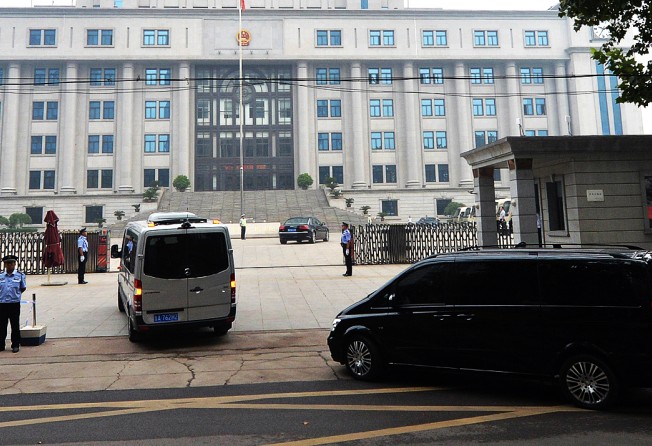China moves to gives court judges more independence in bold reform move
Nation's top court lays out plan to give judges greater independence, starting with the removal of interference from local governments

China's top court has unveiled a roadmap for its five-year reform plan to boost judicial independence, giving judges more authority in rulings by unleashing them from interference by local governments.
The reform was a top priority of President Xi Jinping's administration, senior judges said, as relieving the country's 200,000 judges from being virtual administrative cadres in the civil service would make it one of the boldest proposals in decades.
"The change is remarkable, as it will allow judges to focus strictly on trials, not administrative duties," said Zhang Yongjian, a senior judge at the Supreme People's Court.
"Being a judge is different to other jobs, as the court has more power and its rulings have a greater impact on people's lives."
He Xiaorong , director of the court's reform office, said yesterday in Jinan , Shandong , that the reform would address many deeper issues that have resulted in justice not being served.
Provincial-level boards would be set up to appoint and promote judges, and a similar committee would monitor judicial conduct, He said.
Such measures also aim to improve court officials' professionalism and independence.
Another part of the reform is meant to address and remedy judicial errors,
He also said he wanted to see lawyers playing a larger role in helping the judicial process become more based on the rule of law, which would build public confidence.
One area he specifically mentioned was that a lawyer's right to cross-examine a witness must be protected.
Regional circuit courts and intellectual property courts will also be set up to meet the public's needs.
The agenda for the court reform was introduced after chief justice Zhou Qiang said on Tuesday at a meeting with the nation's top judges in Jinan that the administration of justice was to take place in public.
"A transparent judiciary would also supervise and regulate the use of judicial power, and this in turn force judges to improve their professionalism," Zhou said.
Legal experts said was still too early to be optimistic about the reform.
Tong Zhiwei, a professor at the East China University of Political Science and Law in Shanghai, said the reform only existed on paper for now.
"These are all good ideas," Tong said. "But to put the ideas into practice might require legislators to revise the constitution or the higher authorities to make bold policy changes."
The new five-year plan for court reform, the forth of its kind, is part of a broader judicial reform that is expected to be fully introduced after the Communist Party's plenary meeting later this year. The party pledged at its last plenum in November to deepening judicial reforms.
An unnamed official serving on the judicial reform panel told Xinhua earlier that a pilot scheme would be introduced in several cities, and that provincial and lower level courts would be managed independently from regional governments to avoid allegations of political interference.
Xinhua also said cases would be handled only by presiding judges and not local party's politics and law committees, now seen as one of the biggest obstacles to judicial independence.